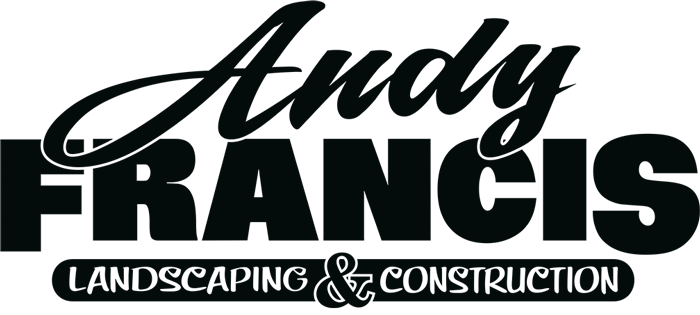FAQs
Andy Francis Landscaping & Construction
Over 27 Years of Experience
Cutting-Edge Equipment
Free Consultations and Estimates
Call or Text
Hours:
Request Estimate
Hero Request Form
Thank you for contacting us.
We will get back to you as soon as possible
Please try again later
Have a landscaping-related question? Andy Francis Landscaping & Construction has the answer. Check out these FAQs and then call or text us for more information.
-
What’s the best time of year for landscape installation?
Generally, spring is the best time for prepping and planting flower beds, and for beginning hardscaping projects. The summer construction season is when the majority of large landscaping and hardscaping projects are done. Fall is a great time for planting trees and bushes since temperatures are lower. Hardscaping also continues through the fall until the ground freezes, or it begins to snow.
One example is of a past project that began in late summer. All the hardscaping work was done, including the patio, sitting walls, and fireplace, and trees and shrubs were planted as well. The following spring is when we got the perennial and annual plants in the ground, as they thrive in the spring.
To ensure your project gets done in your desired time frame, start contacting landscaping companies during the winter months. This ensures that your project is scheduled when the season starts. Often by late summer crews may be booked through the end of the season.
-
What is the difference between landscaping and hardscaping?
Modern landscaping refers to the design, planning, and construction of gardens and other features that create useable space for outdoor activities while enhancing the appearance around a home. Landscaping includes hardscaping and softscaping, although many people refer to softscaping and landscaping interchangeably. Hardscaping includes materials such as stone and wood, retaining walls, decks, firepits, and more. Softscaping would then refer to planting designs, creating berms, grading, and mulching. We offer both softscape and hardscape design in the Lakes area.
-
What’s the difference between annuals and perennials?
Annuals grow for one season and then die when the weather gets cold. Perennials emerge every spring after being dormant during the winter. Examples of popular annuals in Minnesota are pansies, snapdragons, petunias, geraniums, salvia, California poppy, violas, and many more. Some perennial examples are phlox, peonies, purple coneflower, daylilies, black-eyed Susan, Virginia bluebells, coral bells, hostas, and more.
-
Do I need an irrigation system?
Irrigation systems are not necessary for maintaining the health of your lawn or plants but can be helpful. Irrigation does much of the hard work that watering entails so that you don’t have to, and it hits the parts of your lawn you might miss. A hose and sprinkler can be a money-saving alternative but require you to set timers and manually move the sprinkler around your yard. With either option though, it’s easy to waste water. Ultimately, you have to decide if an irrigation system is right for you.
-
Should I rake up leaves or mulch them into my lawn with a mower?
We recommend mulching leaves as they will add nutrients to your soil and make for a healthier lawn. Raking up the leaves will not harm your lawn, but you’ll also be missing out on the benefits leaves provide. One note of caution, do not ignore blankets of full leaves on your lawn, either raking or mulching is necessary. If you don’t, the leaves can actually do more harm than good since they’ll block sunlight and air from getting to the grass. This problem can be compounded when it rains, eventually leading to turf diseases or dead grass.
Learn More About Andy Francis Landscaping & Construction
Serving the Detroit Lakes, MN area, Andy Francis Landscaping & Construction specializes in landscaping and hardscaping services. Over 27 years of experience. Cutting-edge equipment. Free consultations and estimates. Call us today for your free estimate.
serving Area
Detroit Lakes, MN
Fargo, ND
Park Rapids, MN
Fergus Falls, MN
Alexandria, MN
and surrounding areas
Business Hours
- Mon - Fri
- -
- Sat - Sun
- Closed


Share On: